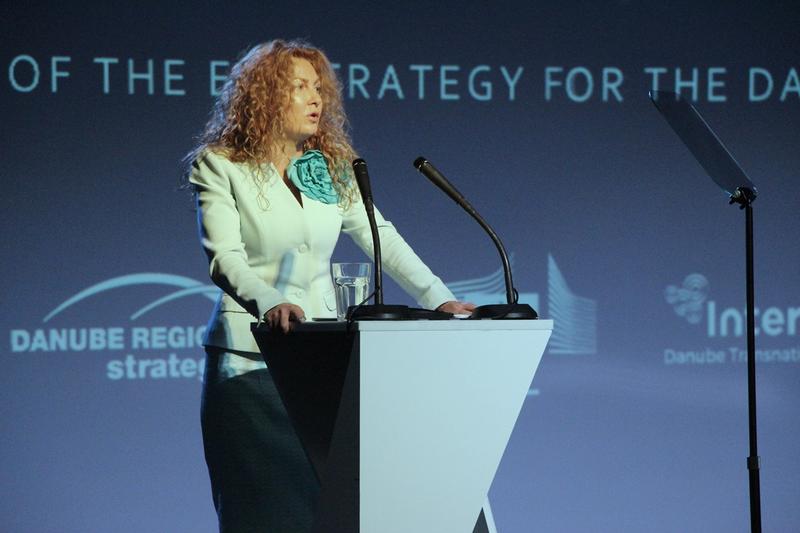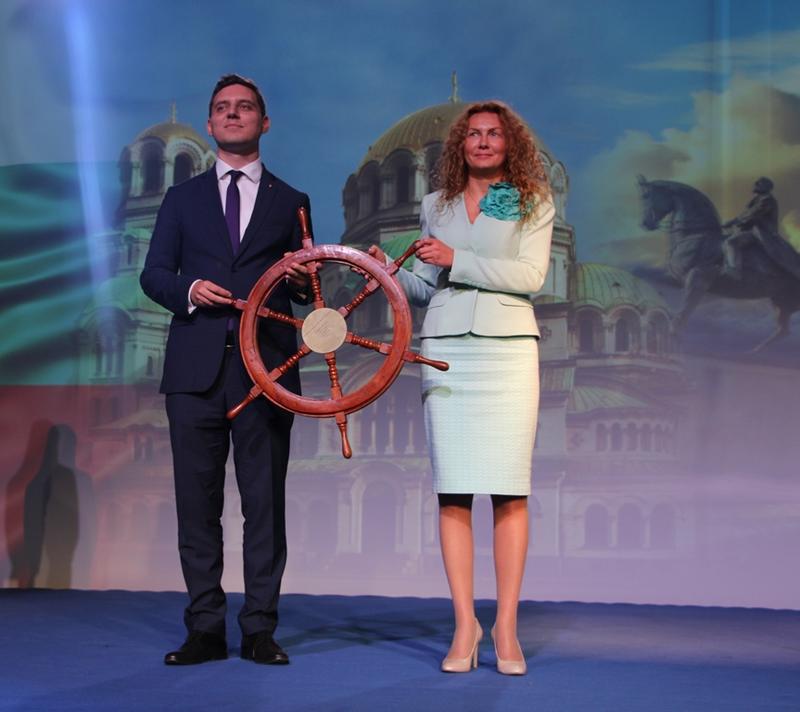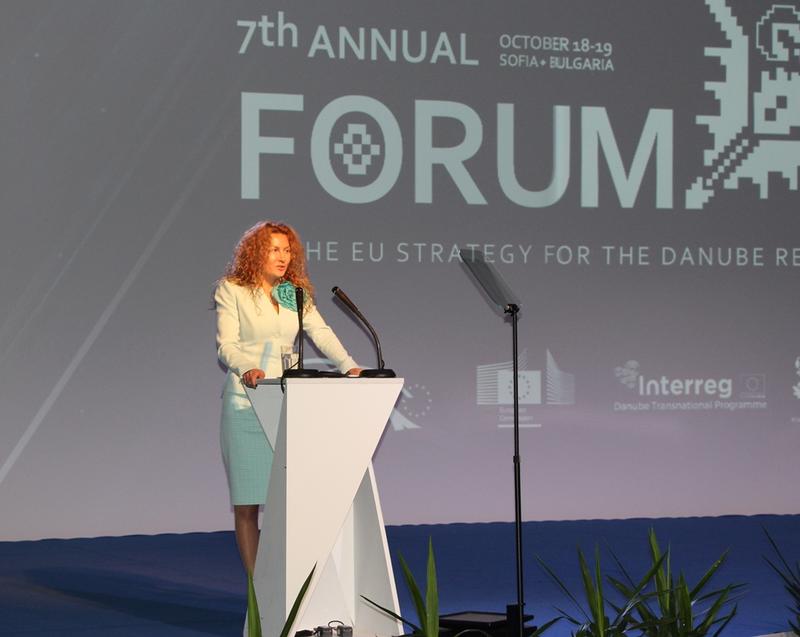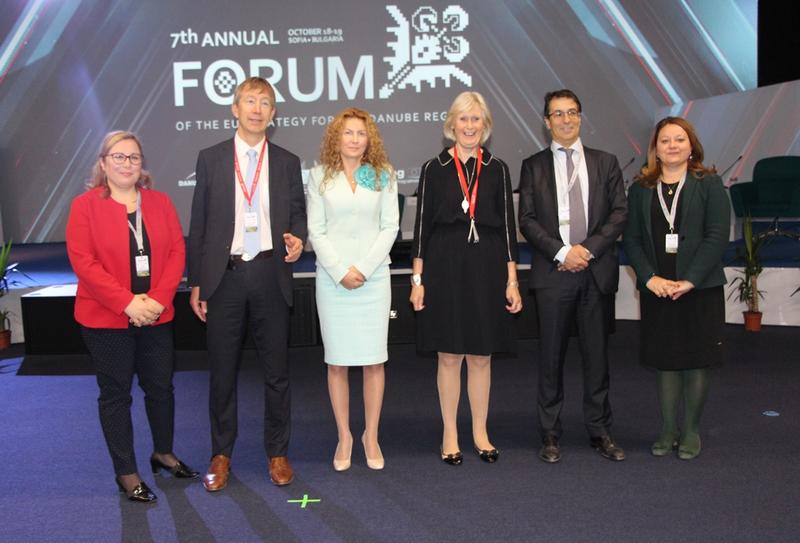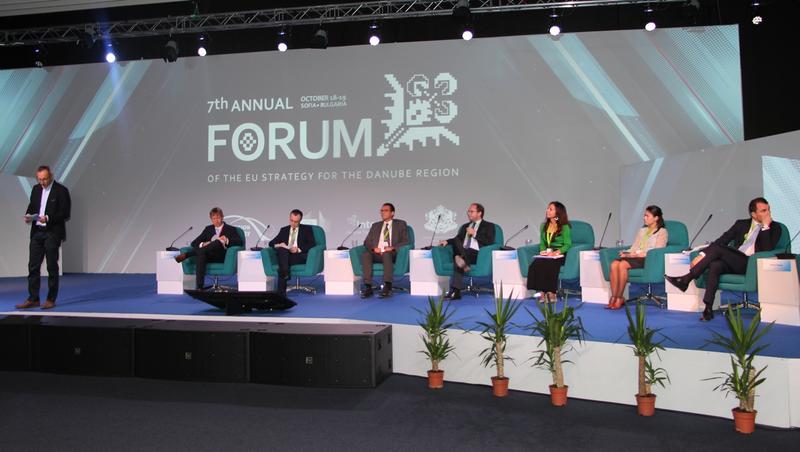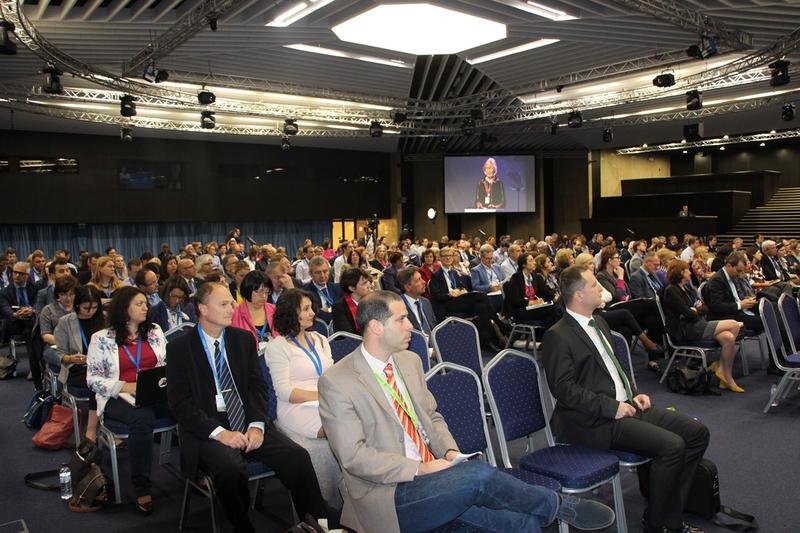At an official ceremony Bulgaria handed over the rotating Presidency of the EU Strategy for the Danube Region to Romania
At an official ceremony Bulgaria handed over the rotating Presidency of the EU Strategy for the Danube Region
By Ministry of Regional Development and Public Works
Over 900 delegates from Bulgaria and another 30 countries of Europe took part in the 7th Annual Forum of the Strategy
Bulgaria handed over the rotating Presidency of the EU Strategy for the Danube Region to Romania. Deputy Minister of Regional Development and Public Works Denitsa Nikolova, who is National Coordinator of the Strategy, handed over the symbol of the Presidency - a ship's wheel, to Victor Negrescu, Romania's Minister Delegate for European Affairs. The 7th Annual Forum of the EU Strategy for the Danube Region, as well as the Bulgarian Presidency of the Strategy, ended with the official ceremony. With over 900 delegates from all over Europe in the course of two days we have been able to take account of the significant progress of the Danube Strategy, its achievements and future development in the context of the next EU’s programming period after 2020 in order to make the coasts of the Danube River even closer”, Deputy Minister Nikolova said.
She stressed the need for reinforcing the countries’ political commitments for the implemention of the Strategy. It is crucial for the countries to unite around common strategic projects of regional importance that have funding guaranteed with a view to achieving more tangible results. „Tourism and cultural heritage are important issues that unite us and make our efforts visible”, Nikolova observed. She stressed that the Strategy needed everyday work and the active participation of the countries to find solutions to the problems and make better use of the potential that these countries have to offer. Deputy Minister Denitsa Nikolova expressed her exceptional gratitude to all the institutions that supported the Bulgarian Presidency of the Strategy - the European Commission, the Trio Presidency of Hungary, Poland and Romania, the national coordinators and the coordinators of the priority areas for all their support and excellent cooperation in the past year.
There were more than 900 people from over 30 countries of Europe who participated during the two days of the Forum, which took place in the National Palace of Culture. Deputy prime ministers, ministers, deputy ministers, members of parliament, ambassadors and representatives of a number of European institutions were among the official guests of the event.
In addition to the topics of tourism development and cultural heritage protection and their added value to the achievement of economic growth and jobs, there were also discussed the topics related to digitalisation of tourism, staff qualification, connectivity, security of public places, the possibilities to support the Strategy of the Danube Programme and the future of macroregional strategies.


